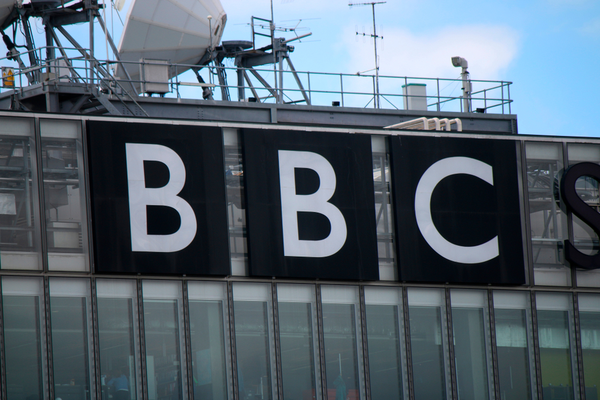Media’s guidelines say employees can’t attend “controversial” protests; why is antisemitism a controversial subject, ask critics.
By Batya Jerenberg, World Israel News
The BBC has come under fire for reportedly banning its staffers from attending a local rally against antisemitism Sunday, with critics pointing to an unacceptable double standard when it comes to Jew-hatred.
The media giant’s guidelines state that its employees should not “express a personal opinion on matters of public policy, politics, or controversial subjects.” This includes going to demonstrations.
Irate staffers are wondering why protesting antisemitism is considered “controversial.”
As one told local paper The Times, “Racism is racism and something we should all abhor — but not when it comes to anti-Jewish racism it seems. If the BBC believes that racism is racism and not acceptable in any shape or form then going on a rally against antisemitism shouldn’t be an issue.”
The BBC has also reportedly told its staffers that they cannot attend pro-Palestinian rallies, based on the same guidelines. However, as another employee pointed out, the two are not comparable.
“Antisemitism is not the same as overtly political support for Palestinians,” the employee said. ”You can object to Israeli political positions and reactions but fundamentally resurrecting antisemitic tropes and Jew hatred is a completely different matter.”
The National Solidarity March Against Antisemitism is being billed as the largest demonstration of its kind in over 80 years, with over 40,000 expected to march Sunday afternoon in central London. Its impetus is the fact that antisemitic attacks have exploded in Great Britain, with an over 500% rise since Hamas attacked Gaza envelope communities on October 7, slaughtering 1,200 people, mostly civilians, and Israel declared war on the terror organization.
The march organizers, Campaign Against Antisemitism, said that if the conglomerate had indeed prohibited its employees from attending, then “it is an outrageous restriction.”
“Part of the problem that British Jews are facing,” the group pointed out, “is that antisemitism has somehow become a matter of debate with two sides. The BBC must urgently clarify which side it is on.”
The BBC denied vetoing the event in a statement to The Times.
“The BBC is clear that antisemitism is abhorrent. We have established guidance around marches, which explains that different considerations apply depending on what you do for the BBC. Corporately, we have not issued any staff communication on any specific march this weekend, but this does not mean discussions which consider the guidance have not taken place between colleagues.”
The global outlet is considered by many Jews to be heavily anti-Israel and veering into antisemitism in its reporting, especially in Arabic. Throughout the years of Hamas’ indiscriminate rocket and other terror attacks on Israeli civilians, the BBC had never called it a terror organization despite its designation as such by the British government.
Even after October 7, when it was proven that Hamas fighters had burned whole families alive, systematically raped and brutalized women and girls, and beheaded infants during their rampage, it took weeks of heavy political pressure for the BBC to start calling them terrorists.





